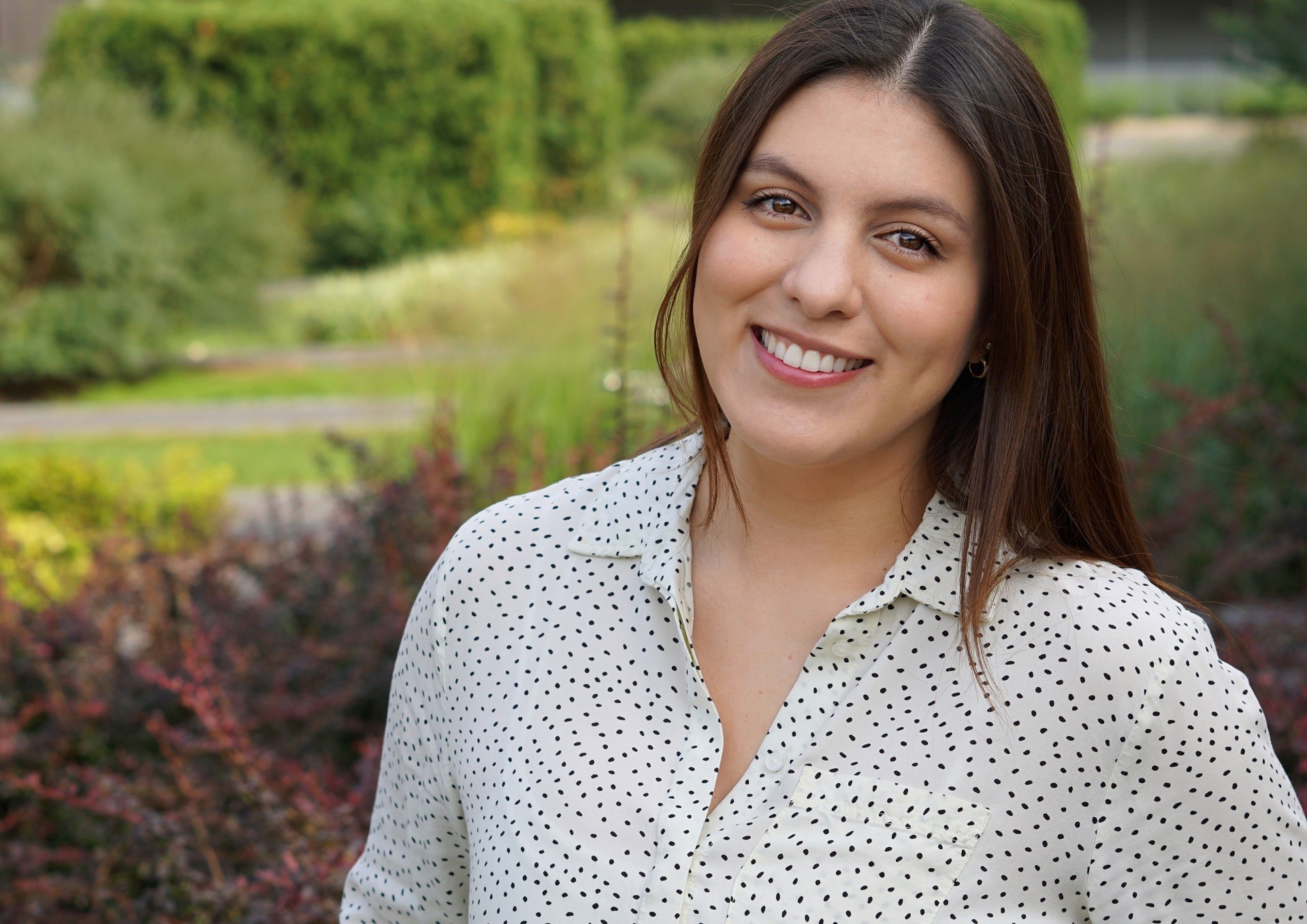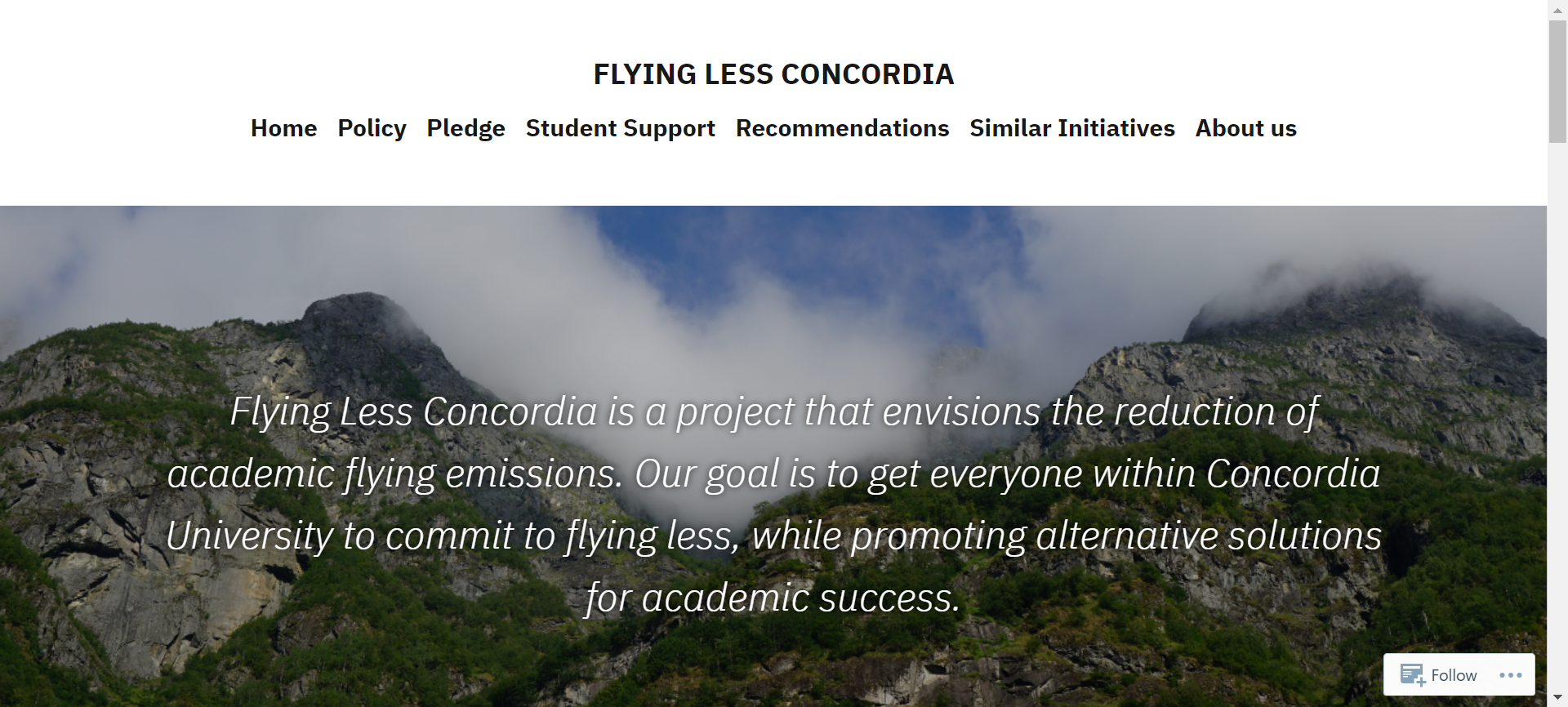Luz Gomez-Vallejo
"I'm creating a culture of flying less."

Luz Gomez-Vallejo, a Masters student in Environmental Assessment (MEnv), received the Experiential Learning Grant to research the flying less culture and its role in reducing greenhouse gas emissions in the academic realm. Throughout this particularly tough year, Luz had the good fortune to meet a group of inspiring people. She completed her internship at Net Impact Montreal (NIM), a non-profit organization supported 100% by volunteers with a mission to inspire the local community to become agents of change through sustainable, ethical, and socially responsible action. This internship was made possible due to the support of Concordia’s Department of Geography, Planning and Environment (GPE), especially thanks to the efforts made by Dr. Sébastien Caquard (Program Director) and Niem Huynh (Internship Coordinator) who supported the ‘Master of Environmental Assessment’ student cohort in their quest to find meaningful internships amid the COVID-19 crisis. "Our students thrive in the workplace, bridging theory, practice and their passion," says Huynh.

During her internship, Ms. Gomez-Vallejo was supervised by Aditya Jain and Kunal R. Garge (Co-Presidents of NIM), and by Dr. Caquard. The main goal of the experience was to develop the ‘Flying Less Concordia’ project, which intends to promote a flying less culture at Concordia University. Prof. Sébastien Caquard, Graduate Program Director of the Master of Environmental Assessment program, shares that “the internship provides a unique hands on experience to our students of the Masters of Environmental Assessment, but it also offers a great opportunity to employers to learn from our students. Many of our students end up being recruited at the end of the internship. In that sense our program contributes directly to the shaping of environmental assessment practices in Canada and beyond, and we are very proud of that".
This initiative was inspired by the ‘Flying Less Policy’ implemented at the GPE in May 2019. Throughout the development of the project, Luz had the opportunity to work with a group of committed and enthusiastic volunteers from NIM. “We researched what universities around the world have done to reduce their academic flying emissions in order to learn from their process and provide future possible paths for Concordia,” says Luz. “Furthermore, I also delved into the Canadian context of the aviation industry and concluded that even with the impacts that COVID-19 has caused on aviation, it is relevant now more than ever to keep promoting initiatives aimed at changing the flying behaviours deeply embedded in the academic culture.”

The result of this research was a website that includes important milestones to promote the flying less culture university-wide. The website features a pledge for faculty and staff members to commit to flying less as well as a section for students to show their support for this initiative. “The experience of developing this project further enriched my knowledge on Climate Change issues and taught me new approaches to calculate greenhouse gas emissions. I feel that this experience allowed me to explore other ambits of environmental assessment that I was not able to address in the MEnv program. The ‘Flying Less Concordia’ project continues to be developed at the university, being now at its promotional phase.”
“The internship at NIM provided the opportunity to explore other scopes of my professional development. I was able to improve my communication skills in virtual meetings, while increasing my networking opportunities in a friendly environment with amazing people from diverse professional backgrounds and cultures. The NIM team taught me how to plan successful events, including ‘virtual networking’ and ‘plogging’ activities to engage community members and contribute towards a more sustainable world. I also had insights on how non-profits work, and the significant effort required to move forward their goals.”
Learn more about the Flying less project.
This article was written by Emily Andrews.
